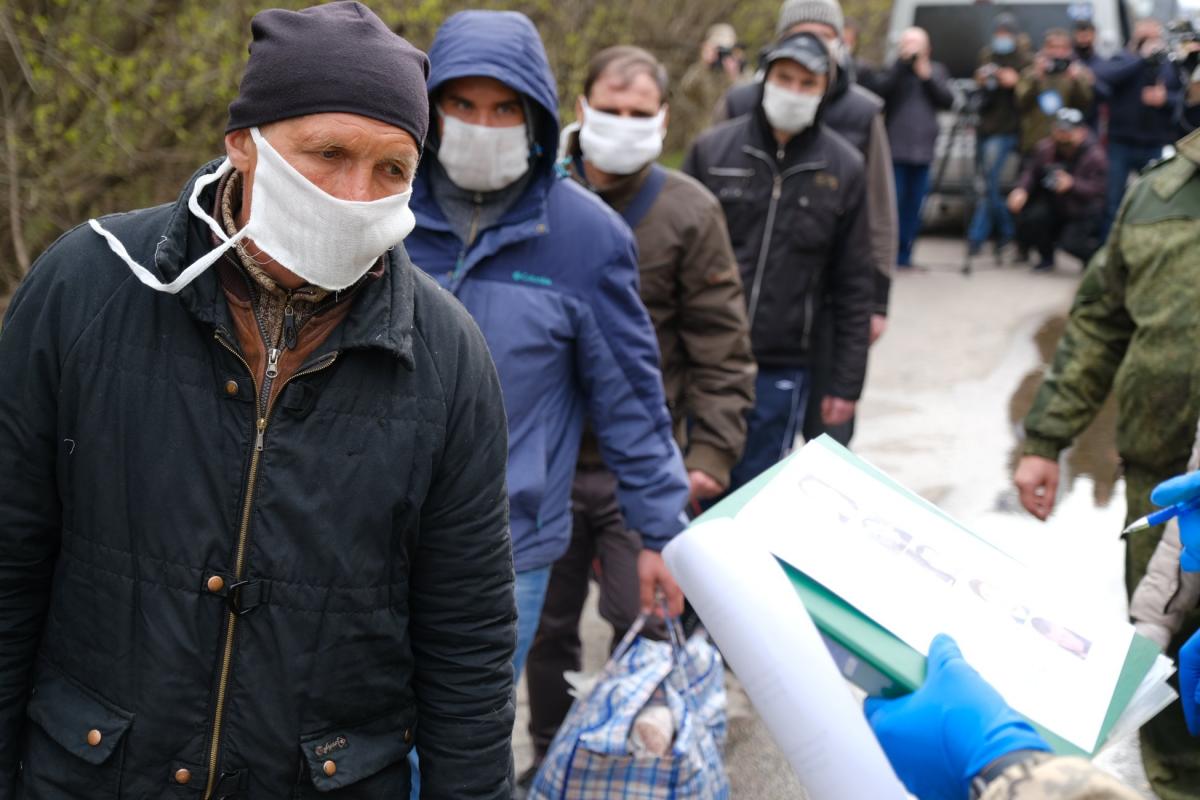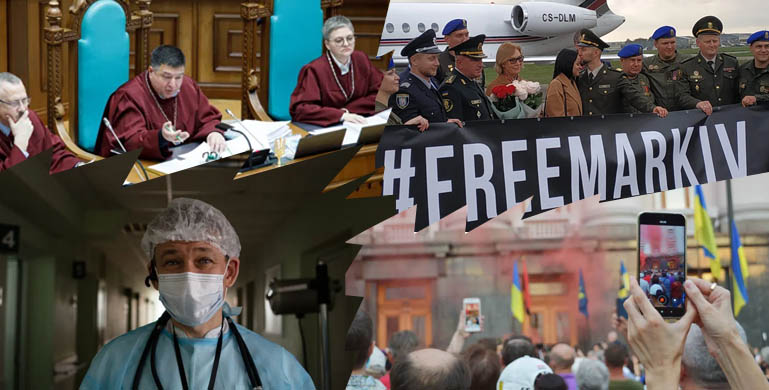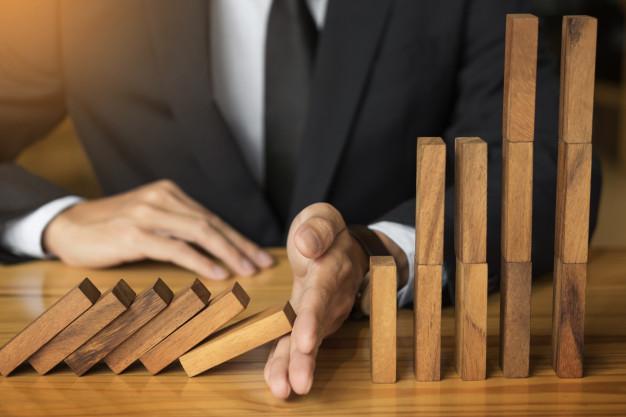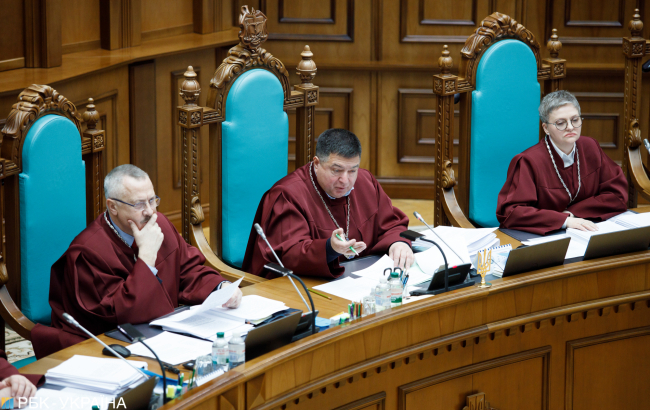2020 was a hard year for nearly the entire world: the COVID-19 pandemic and the multiple ensuing crises showed how easily our civilization can be upset by something as microscopic as a virus. Ukraine faced additional challenges. Ukrainian society, worn out by the sixth year of Russia’s hybrid war against Ukraine, was rammed not only by coronavirus but multiple cataclysms: wildfires in eastern Ukraine, record floods in western Ukraine, dust storms and droughts raised environmental worries. The domestic dimension was also replete with worries: 2020 all but evaporated President Zelenskyy’s reformatory aura, plus the end of the year landed Ukraine in a constitutional crisis. The international front, however, offers some unexpected condolences.
Throughout the year, we covered the major events in Ukraine. Here is our take on Ukraine’s 2020.
Occupied Donbas and Crimea
As 2020 approaches its end and the New Year is nearly upon us, the situation in the Ukrainian regions of the Donbas and Crimea Russia occupied back in 2014 remains mostly unchanged. The de-occupation of the provinces isn’t in sight yet and what was true for them by the end of 2019 mostly remains in place now: military actions didn’t fully stop in the Donbas and negotiations are in gridlock while Crimea suffers from a lack of water and its occupation authorities continue their crackdown on dissenters.
Donbas

At the start of 2020, many in Ukraine feared that Zelenskyy would make an unacceptable deal with Russia for a short-term solution to the war in Donbas that would, however, mean a long-term defeat in Russia’s overall hybrid war against Ukraine. Relevant protests by the Capitulation Resistance Movement spilled over from 2019 to 2020. Despite some worrying steps, at the end of the year, it appears that the initial “peacemaking” zeal of President Zelenskyy’s team has given way to the traditional diplomacy of Petro Poroshenko’s time.
[boxright]
Donbas negotiations in deadlock again as Russia demands local elections (again)
[/boxright]
Zelenskyy’s high hopes of busting the stalemate over the Russian occupied regions of Ukraine were behind the reshuffling of the Minsk Group (TCG) that negotiates peace for the Donbas. The accords on the Donbas achieved at the Normandy Four (N4) summit of Ukraine, Russia, Germany, and France leaders in early December 2019 were meant to reset the ceasefire, prisoner swap process, and further peace negotiations.
After the massive 127-to-76 prisoner exchange at the end of 2019, however, only a minor 14-to-17 swap followed up and the exchange process once again stalled for the rest of the year.
In July, former president Leonid Kuchma quit the TCG and another ex-president, Leonid Kravchuk, replaced him as head of the Ukrainian delegation. Kravchuk’s faith in Russia’s negotiability crashed against reality: Russia has not changed its Donbas-related political demands, which are a red line for Ukraine, since 2014 despite any concessions made or proposed by the Ukrainian side.

The new ceasefire negotiated at the N4 meeting in Paris wasn’t steadfast enough so Ukraine agreed to a new one that started in late July. The latter faced a lot of criticism among Ukrainians as the restrictions for troops were significantly extended. The armistice efforts led to a drop in the number of attacks on Ukrainian positions, however, they didn’t fully stop hostilities and casualties, meaning that Russia can ramp up pressure on Ukraine’s political leadership whenever it wants.
Over 2020, Zelenskyy’s team made several attempts to legitimize direct negotiations with the “leaders'' of the Russian puppet republics -- something that remains a major goal for Russia. On 11 March, Ukraine’s representative to the TCG signed
a document conferring political legitimacy on Russia’s statelets in eastern Ukraine. In August, attempts were made to have Ukrainian positions in Shumy inspected by a group including a member of the “Donetsk People’s republic.” Both initiatives were thwarted thanks to a public outcry, but are nonetheless troubling signals that muddle the position of the President’s Office and its head Andriy Yermak, who have taken over questions related to Russia and occupied Donbas.

As of the end of 2020, the Donbas negotiations have been in gridlock - its “usual” status throughout the years of war. No new Normandy Four meetings occurred in 2020, and the TCG remote meetings are fruitless for several months now. The idea of introducing UN peacekeepers to Donbas, floated during Poroshenko’s time, has been forgotten, and while a “Plan B” is occasionally mentioned by Zelenskyy’s administration, what it entails is unclear. Meanwhile, Russia continues handing out its passports to Donbas locals in the occupied territories.
In a new development this year, a wave of coal miner strikes against wage delays in the occupied Donbas, which showed that mass protests there are possible and can bring results as long as their demands are not political.
Crimea
The freshwater crisis in the Russian-occupied Crimean peninsula has significantly escalated in 2020. Ukraine had cut water supply via the North-Crimean Canal back in 2014 shortly after the annexation of Crimea. Since then, the Russian occupation authorities haven’t been able to substitute the Ukrainian water despite a lot of effort. Crimean water reservoirs have been drying up.

Meanwhile, Deputy Chairman of the Mejlis of the Crimean Tatar people Nariman Dzhelialov says that a huge amount of water in Crimea is used for the needs of the Russian military. Meanwhile, according to 2018 estimations, Russians moving into occupied Crimea, including the military and their families, formed one-fifth of its population.
In 2020 Russia continued its repressions of Crimean Tatars, the indigenous people of the peninsula. According to the LetMyPeopleGo initiative, Russia holds at least 102 Ukrainian political hostages in Russia and occupied Crimea; 76 of them are Crimean Tatars. You can support them by joining the annual Winter letter marathon launched by the LetMyPeopleGo campaign - find the instructions here.
Domestic affairs

for the local governments, including these newly-reconstructed schools Cherkaska Oblast. Source: oblradack.gov.ua
As for Ukraine’s domestic reforms and political developments, 2020 was marked by the completion of Ukraine’s decentralization reform, a long-awaited opening of the land market, and a new large-scale wave of road construction.
Decentralization reform started by Yatseniuk’s and then Hroysman’s governments in 2015-2016 is considered one of Ukraine’s most successful reforms. In 2020, during local elections, the last remaining Ukrainian municipalities of the old ordinance were amalgamated into larger municipalities with new broadened powers and higher tax incomes. Therefore, more money remains in local communities rather than in the central government. Decentralization since 2015 and in 2020 also has resulted in thousands of new local projects accomplished throughout Ukraine.
A large-scale wave of road construction is another project started by Hroysman’s government in 2016 to repair and modernize Ukrainian roads that were mostly not renewed since 1991. 2020 saw a record sum allocated for road construction and, together with the continuation of other transport projects, has finally wiped out the stereotype about Ukraine as a country with awful infrastructure.

However, this achievement is marred by the fact that 20% of Ukraine’s dedicated COVID-19 fund was fatuously spent on road construction, while hospitals proved themselves woefully unprepared to face a surge of patients.
The long-awaited opening of the land market is a success attributed primarily to Honcharuk’s government in 2019-early 2020. The adopted law allowed the sale of agricultural land, establishing a transparent market instead of the former post-Soviet quasi-market, where only long-term rent of agricultural land was possible. If properly implemented, this may be the main achievement of Zelenskyy’s team so far.
[highlight]At the same time, some negative tendencies, aside from the COVID-related economic crisis, have undermined positive achievements.[/highlight]
[boxright]
Prosecutor General turns the tables on corruption fighter who survived three murder attempts
[/boxright]
In particular, a set of criminal cases and court hearings against Zelenskyy critics, former Euromaidan activists, and main opposition rivals have proved that the president dreads open political competition and tries to use law enforcement agencies in his interests. The replacement of former prosecutor general Riaboshapka by Iryna Venediktova in March opened a new wave of political persecution.

Also, Ukraine’s post-Euromaidan anti-corruption reforms were challenged by the Constitutional Court of Ukraine by judges who themselves were accused of corruption. The judges declared the cornerstone of the anti-corruption laws -- an open register of asset declarations -- unconstitutional. This has led to a still-unresolved constitutional crisis
.
[boxright]
Ukrainian local elections: Stability of local elites and Zelenskyy’s crushing defeat
[/boxright]
These and many other minor events undermined the previously high rating of Zelenskyy, who in 2019 secured the largest share of votes and public support among all politicians in the history of independent Ukraine. Zelenskyy’s self-positioning as a person outside of the system has wilted.
This was proven by Zelenskyy’s party's crushing defeat at local elections in October. Amid weak central government, local elites were re-elected with enormous support in almost all Ukrainian regional centers. Yet, this result reflects a fairly stable tendency of Ukrainian society, where moods towards the central government head south quickly under the impact of gloomy TV-narratives while staying more favorable towards local elites, who “do real things.”
International relations

Ukraine’s international front was not without controversy, yet, at the end of the day, it arguably offers the most optimistic yearly results.
On 12 June, Ukraine became a NATO Enhanced Opportunities Partner, along with Australia, Finland, Georgia, Jordan, and Sweden. And although this does not prejudge any decisions on NATO membership, it opens further avenues for cooperation and integration.
As well, positive developments were seen in EU relations. At the Ukraine-EU summit which took place in Brussels in October 2020, the Ukrainian government managed to achieve two important goals: an agreement to renew the EU-Ukraine association agreement from 2014, some parts of which could use an update, as well as plans for an “industrial visa-free regime.” This greenlights the further integration of the Ukrainian and EU markets.
[boxright]
“Black Sea mosquito fleet”: how the UK will help Ukraine regain its naval footing
[/boxright]
No less positive are the agreements Ukraine reached with the UK. In October, Ukraine signed two important agreements: a comprehensive new partnership and trade agreement with the UK that will replace the EU-Association Agreement after Brexit, and a Memorandum on strengthening cooperation in the military and military-technical spheres. The latter will allow re-equipping the Ukrainian Navy, helping Ukraine regain its naval footing in the Black Sea after a knockout that came with Russia’s occupation of Crimea in 2014.
In a step refreshingly full of initiative, Ukraine launched a new international format - the Lublin Triangle. Uniting Ukraine, Lithuania, and Poland, its aim is to further cooperation in defense and economy. And although it still has to be filled with concrete projects, Ukraine’s pro-activeness in initiating new formats of cooperation is undeniably laudable.
[boxright]
[/boxright]
Regarding Ukraine’s number one problem -- Russian aggression -- development are both positive and negative. In what human rights activists called “THE event of the year,” in December, the International Criminal Court in The Hague finally decided to launch an investigation into the situation in Ukraine regarding war crimes and crimes against humanity committed in occupied Crimea and Donbas, bringing Russia’s responsibility for its aggression against Ukraine one step closer.
Among other positive Crimea-related developments is the establishment of the Crimean Platform by the Ukrainian MFA in October. The Platform is an international forum for addressing the challenges emanating from the occupation of Crimea. It did not help to de-occupy Crimea yet, however, it promises to help return the topic of the occupation of Crimea to the forefront of public discourse.

The arrest of 33 Wagner mercenaries, many of whom fought against the Ukrainian government in Russian-occupied Donbas, on 29 July in Belarus is still shrouded with mystery. Several Ukrainian journalists alleged this was a high-ranking special operation of Ukrainian intelligence that was sabotaged by the President’s Office. Contributing to the mystery was former President Poroshenko’s proclamation on 30 December that it was he who authorized the operation back in 2018.

Arguably Ukraine’s most elating international victory of the year is the acquittal of National Guardsman Vitaliy Markiv, an Italian-Ukrainian national, who was sentenced to 24 years in prison for alleged complicity in the killing of an Italian photojournalist and Russian human rights activist Andrei Mironov amid hostilities in eastern Ukraine. The case was seen as heavily influenced by Russian propaganda, and the acquittal - as a triumph of justice.



![Anti-corruption steps of Ukraine's new parliament endorsed by activists [fight corruption]](https://euromaidanpress.com/wp-content/uploads/2019/10/антикор2019-1.jpg)

